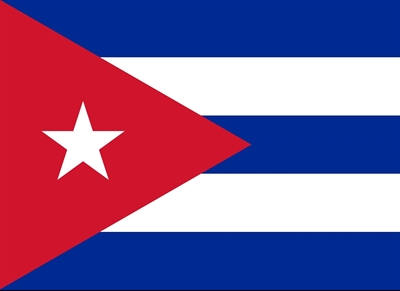Cuba - Human Rights Council - Death Penalty - October 2017
Country: Cuba
Type: Intl Mechanism Submission
Issues: Death Penalty, Detention, International Advocacy, Torture
Mechanism: UN Universal Periodic Review
Report Type: Stakeholder Report
Stakeholder Report for the United Nations Universal Periodic Review, 30th Session of the Working Group on the Universal Periodic Review (May 2018)
Partner: The World Coalition Against the Death Penalty
In October 2017, The Advocates for Human Rights and The World Coalition Against the Death Penalty submitted a report to the Human Rights Council addressing the death penalty in Cuba for that country’s Universal Periodic Review.
The Cuban government has maintained a de facto moratorium on the imposition of the death penalty since its last reported execution in 2003, and death row has been empty in the country since 2010. However, the death penalty has not been abolished, and is not limited to the most serious crimes. Crimes punishable by the death penalty include rape, robbery, treason, and drug trafficking.
During its 2013 Universal Periodic Review, Cuba received 12 recommendations related to the death penalty, including to ratify the Second Optional Protocol to the ICCPR and abolish the death penalty. While the government has expressed its intention to possibly eliminate it when suitable conditions exist, as of yet the government has not taken any steps toward the elimination of the death penalty.
Prior to these commutations, inmates on death row have been reported to be treated with poor conditions including solitary confinement, isolation, denial of health care, insufficient food and water, poor hygiene conditions, beatings, and torture.
- The joint stakeholder report recommends the following for the Government of Cuba:
- Impose an official, de jure moratorium on the death penalty, effective immediately;
- Abolish the death penalty and replace it with sentencing that respects international human rights standards;
- Ratify the Second Optional Protocol to the ICCPR;
- Develop and implement a comprehensive awareness-raising campaign that educates the public about international human rights standards and alternatives to the death penalty.




